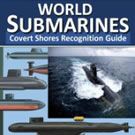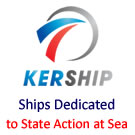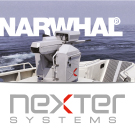|
|
|||
 Russian Navy Admiral Essen frigate sailing through Dutch EEZ in the North Sea. Picture: Royal Netherlands Navy Russian Navy Admiral Essen frigate sailing through Dutch EEZ in the North Sea. Picture: Royal Netherlands Navy |
|||
|
|
|||
| As noted by Rakhmanov, the timing depends not only on gas turbine units - the shipbuilders will have to resume contracts on all major systems. "Therefore, it is very important here that we are able to comply with the warranty periods, the service life of equipment and the corresponding storage life," the head of USC said. As Izvestia was told at the Navy's Main HQ, the tandem power plant configuration of two M70FRU gas turbine engines is being considered as the core project. According to preliminary calculations, this should ensure the maximum power output of 14,000 hp. In this case, the ship will be able to move at a speed of 30 knots and the cruising range will be 4850 nautical miles (9,000 km). This is quite enough to go from the Baltic Fleet’s main base at Baltiysk to Russia’s Tartus naval base in Syria without fuel replenishment. |
|||
|
|
|||
 Three unfinished Project 11356 frigates at the PJSC "Baltic Shipyard" Yantar ". To the left of the wall stands the frigate "Admiral Butakov", launched in the water, the frigates "Admiral Istomin" (prepared for launching) and "Admiral Kornilov " standing in open pitches are visible. Picture taken in May 2017 via mil-avia.livejournal.com Three unfinished Project 11356 frigates at the PJSC "Baltic Shipyard" Yantar ". To the left of the wall stands the frigate "Admiral Butakov", launched in the water, the frigates "Admiral Istomin" (prepared for launching) and "Admiral Kornilov " standing in open pitches are visible. Picture taken in May 2017 via mil-avia.livejournal.com |
|||
|
|
|||
| Expert Alexander Mozgovoy told Izvestia that the decision to complete the Project 11356 frigates was welcome. "Our Navy really needs them and we would have lost three good ships in case of selling them to India," said the expert. "These are general-purpose ships that can operate in the Mediterranean, in the central Atlantic and in the north. We are in desperate need of such ships today as all the large Soviet-era ships are badly worn and their service life is nearing the end. In fact, there is no alternative to the Project 11356 frigates." Project 11356 frigates are designed to attack enemy surface ships and submarines both in the near and far maritime zones, counter air targets, both independently and as part of a task force. Frigates of this type are armed with a 100mm A-190 gun, strike and air defense missile systems, including Kalibr and Shtil, torpedoes. The ship can carry a Kamov Ka-27 helicopter and its versions. The ship's displacement is 3620 tons and its length is 124.8 meters. The full speed is 30 knots and the cruising range is 4850 miles. © Copyright 2017 TASS. All rights reserved. This material may not be published, broadcast, rewritten or redistributed. Comment The main problem with this plan is the development and manufacture of reducers for new gas turbine units, which can delay the completion of ships, more than the manufacture of the M70FRU gas turbine engines at NPO Saturn. According to available information, the completion for the Russian Navy of three frigates of the modified project 11356 with the Russian all-mode main power plant based on gas turbine engines M70FRU is included in the draft State Armament Program for 2018-2025. |
|||
Russia to resume the construction of the "last three" Project 11356 frigates in 2018
- Posted On





 First ship of class Admiral Grigorovich joined the Russian Navy on March 11 2016. Picture: Yantar Shipyard
First ship of class Admiral Grigorovich joined the Russian Navy on March 11 2016. Picture: Yantar Shipyard




